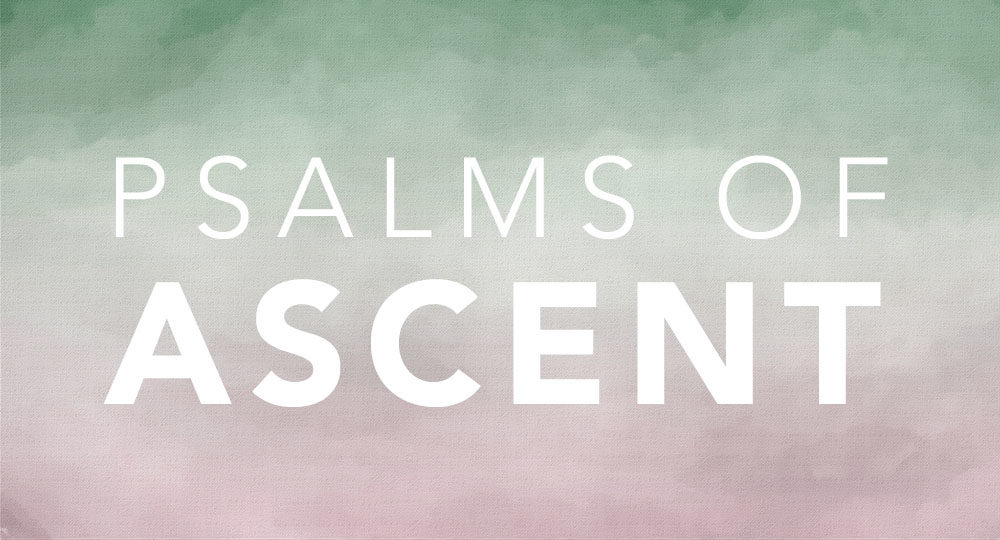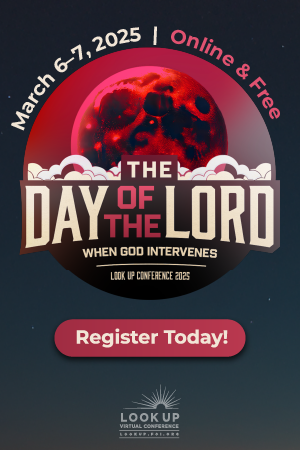Psalm 122: Our Joy And Peace
Psalm 122 is the third of the 15 pilgrim songs known in Hebrew as Psalms of Aliyah, meaning “going up.” Traveling to Jerusalem, especially for the three annual Jewish festivals (Passover/Unleavened Bread, Pentecost [Shavuot], and the Feast of Tabernacles [Sukkot]), is viewed as a “going up,” or ascent, because the city is about 2,500 feet above sea level. Pilgrims regarded going up to Jerusalem as an exultant spiritual experience (cf. Isa. 2:2–3).
Psalm 122 speaks of Jerusalem’s future glory (vv. 1–5), while recognizing its future troubles (vv. 6–9).
Jerusalem is unique. God chose it and placed His name on it (Dt. 12:11, 14; 1 Ki. 11:36). An old rabbinic analogy says, “The world is like the oval of the eye. The white is the sea that surrounds the dry land. The pupil is the city of Jerusalem. And the face within it is the Holy Temple.”
God wanted the world to focus on Jerusalem: “Thus says the Lord Gᴏᴅ: ‘This is Jerusalem; I have set her in the midst of the nations and the countries all around her’” (Ezek. 5:5).
Jerusalem is where God promised to meet with Israel and, ultimately, all peoples of the earth through the redemptive ministry of Jesus Christ.
Psalm 122 was composed by King David before the first Temple was built. Solomon, David’s son, built the Temple after David’s death. “The house of the Lᴏʀᴅ” (v. 1) refers to the early Tabernacle, which stood for God’s public honor, purpose, and plan for all people.
David, also a prophet, revealed in the first five verses that someday Jerusalem will be exceptionally blessed, as crowds come in joy and fellowship. It will be filled with praise and true justice (vv. 4–5).
What David saw was Jerusalem during the Messianic Kingdom. The ancient rabbis viewed the time as “the future days of the Messiah.” This expectancy has always been the great anticipation of Israel (cf. Isa. 2:1–3).
David also saw that Jerusalem would be exceptionally troubled (Ps. 122:6–9). Hundreds of years later, the prophet Jeremiah lamented, “All who pass by clap their hands at you; they hiss and shake their heads at the daughter of Jerusalem: ‘Is this the city that is called “the perfection of beauty, the joy of the whole earth”?’” (Lam. 2:15).
Jerusalem means “City of Peace.” Yet it has not known much peace. Some historians estimate the city has been destroyed twice, besieged 26 times, attacked 52 times, razed to the ground 13 times, captured and recaptured 44 times. It is still plagued by wars and problems.
Therefore, God commanded, “Pray for the peace of Jerusalem” (Ps. 122:6), which involves praying for the city’s safety and the welfare of Israel and all its friends (vv. 7–8).
David loved the Lord deeply, a sentiment he expressed elsewhere in the Psalms: “One thing I have desired of the Lᴏʀᴅ, that will I seek: That I may dwell in the house of the Lᴏʀᴅ all the days of my life, to behold the beauty of the Lᴏʀᴅ, and to inquire in His temple” (27:4).
It is incumbent on all who truly are grateful to Israel for the Scriptures, the Savior, and our salvation to pray earnestly for the peace of Jerusalem. This involves speaking out for Zion’s sake (Isa. 62:1) and serving as watchmen (vv. 6–7). Israel’s enemies would like to change Psalm 122:6 to say something like this: “Pray for a piece of Jerusalem.”
In spite of all the many peace proposals, no peace has come. But one day, Jesus will return as promised (Acts 1:11). And Jerusalem will finally know real peace through the Prince of Peace (Isa. 9:6).





I enjoyed your connecting the Old Testament to the New Testament and how this not only speaks of the children of Israel experience but also of our experience in the Lord.